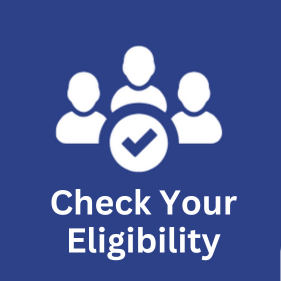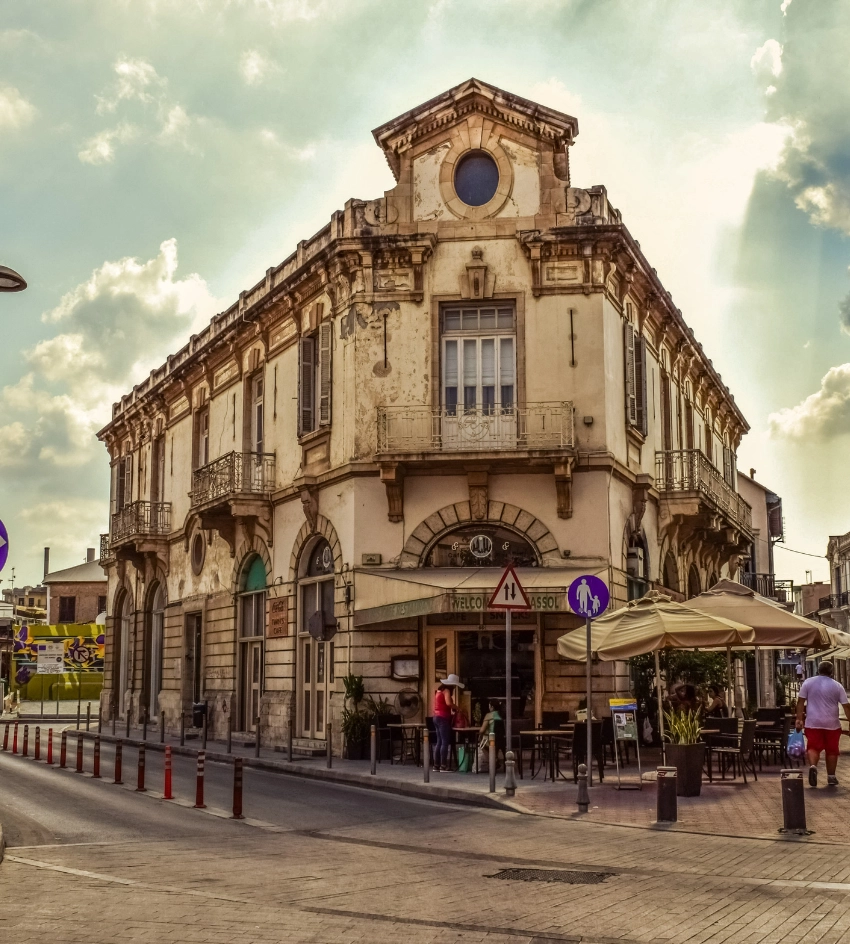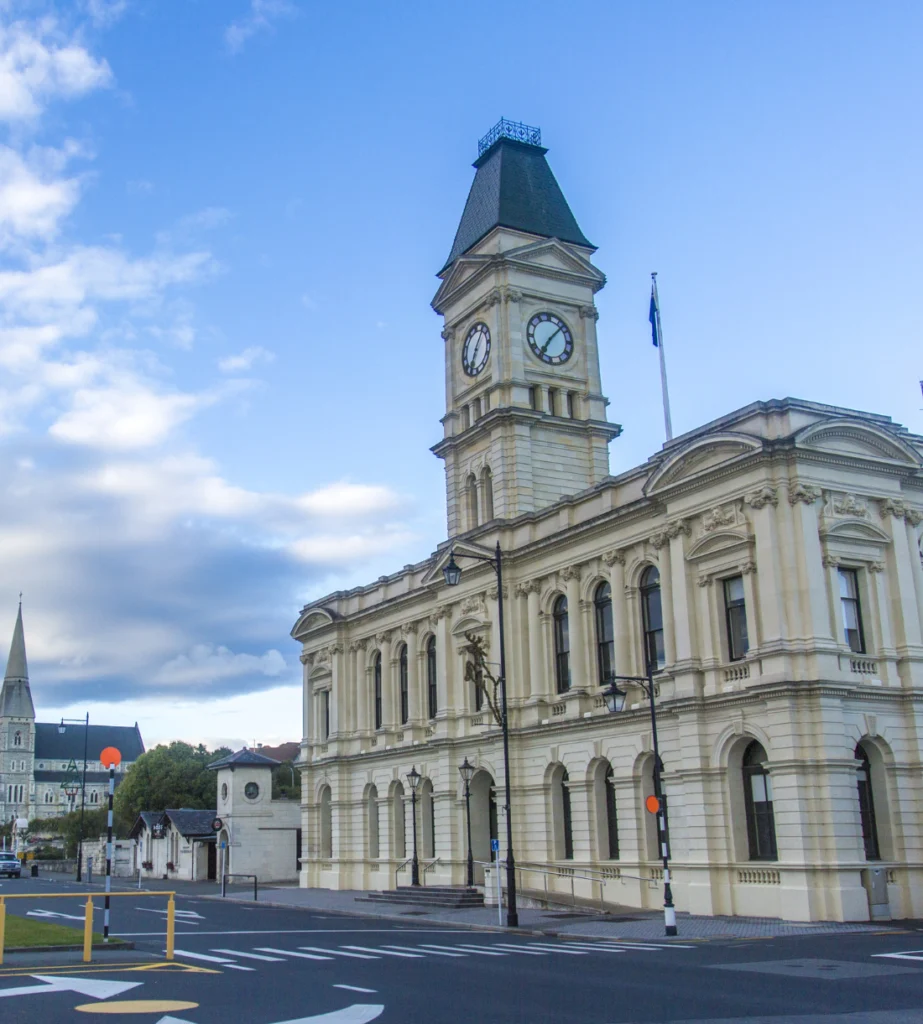STUDY IN IRELAND
One of the predominantly English-speaking European countries, Ireland is the 6th most competitive world economy that is quickly becoming the go-to destination for studying abroad. Currently, more than 44,000 international students from over 160 countries across the globe form the student population at higher education levels in the country.With more than 5,000 courses to choose from, international applicants from diverse corners rush to Ireland to be part of the world’s 20th best education system.

QUICK FACTS:
- Ireland has offices of the World’s top Medical Device Companies.
- It is the World’s second-largest exporter of software. Ireland universities are known for their computer/ software related programs.
- Top Global ICT Companies and Financial Services Companies are based in the Republic of Ireland.
- It is home to more than 1500 MNCs such as Google, Amazon, Audi, Facebook, Boston Scientific, Baxter, Apple, eBay, Medtronic, etc.
- Universities in Ireland offer very specific job-oriented programs.
TOP UNIVERSITIES FOR INTERNATIONAL STUDENTS:
To help with the process, we have compiled a list of the top universities in the country along with their corresponding rankings and student population statistics.
Name of the institute | THE World Rankings | THE Ireland Rankings | International Student Population |
Trinity College Dublin | 155 | 1 | 30% |
RCSI University of Medicine and Health Sciences | 201–250 | 2 | 65% |
University College Dublin | 251–300 | 3 | 29% |
National University of Ireland, Galway | 301–350 | 4 | 17% |
University College Cork | 301–350 | 4 | 19% |
Maynooth University | 401–500 | 6 | 12% |
Dublin City University | 501–600 | 7 | 10% |
University of Limerick | 501–600 | 7 | 19% |
Technological University Dublin | 801–1000 | 9 | 18% |
WHAT TO STUDY IN IRELAND?
Popular master’s degrees and the perfect institute for the program that is highly popular among international students are mentioned as follows:
Popular Program | Best Ireland University for the course |
MS in Finance/Clinical Psychology | Trinity College Dublin |
MSc in Computing | Dublin City University |
Masters of Education/Masters (MS) in Computer Science (Software Engineering) | Maynooth University |
MS in Data Science & Analytics | University College Cork |
MA in History/Masters in Business Administration (MBA) | University College Dublin |
The pictorial representation of international students across various fields of education available in the country is as below.
Other Popular Courses to Study in Ireland:
Masters in AI | Digital Marketing | Civil Engineering | |
Public Health | Health Administration | Public Health |
INTERESTED TO STUDY?
LET'S TALK TO OUR EXPERT COUNSELLORS

WHY STUDY IN IRELAND?
If you are an international applicant seeking to study in the country, some essential points that you might want to take into consideration are as follows:
High-quality education: Irish universities are consistently ranked among the best in the world. In 2023, 9 Irish universities were ranked in the top 500 universities in the world by QS World University Rankings. The universities in Ireland are also known for their research excellence. Research funding of up to 5 million EUR is offered to researchers globally viz. SFI Research Professorship Program.
Affordable tuition fees: Tuition fees in Ireland are relatively low, especially for non-EU students. The average tuition fee for an undergraduate degree at a public university in Ireland is around \$10,000 EUR per year. This is significantly lower than tuition fees in other countries, such as the United States and the United Kingdom.
English-taught programs: Many programs in Ireland are taught in English, making it a good option for international students who do not speak Irish. This is especially important for students who are not yet fluent in Irish, as it allows them to focus on their studies without having to worry about learning a new language.
Beautiful scenery: Ireland is a beautiful country with stunning scenery, including mountains, lakes, and coastlines. This makes it a great place to study and live, and it can also be a great source of inspiration for students.
Friendly people: Irish people are known for their friendly and welcoming nature. This makes Ireland a very welcoming place for international students. Students can easily make friends and feel at home in Ireland.
Safe and welcoming environment: Ireland is a safe and welcoming country for international students. The crime rate is low, and the people are generally friendly and helpful.
Scholarships to Aid your Expenses: Although the country is quite expensive as compared to the rest of Europe, for a good living, students can obtain a range of government and private scholarships in Ireland which are available to bright students with an evident interest in Research and can study in Ireland for free.
Home to Big international businesses: Headquarters of international businesses such as Microsoft, Google, Apple, and Dell are situated in the country and are always on the lookout for fresh talent. Hence, students have plenty of placement opportunities post-completion of their degrees.
Work opportunities: After graduating, international students are eligible to stay in Ireland and work for up to 2 years. This gives students the opportunity to gain work experience and to network with potential employers.
Work and study: While student visas in many countries come with strict restrictions, a visa in Ireland allows international candidates to work for 20 h/week during their course and up to 40 h/week during holidays.
HOW TO STUDY IN IRELAND: APPLICATION PROCESS:
- Explore your options: Since the country is home to hundreds of recognized universities offering more than 5,000 courses, it is important to choose an alternative suited best to your needs and pocket.
- Plan your finances: Since Ireland being a European nation can be highly expensive in terms of its tuition and other expenses, the fact that deserving students can avail up to 100% of scholarships in the country makes it a worthwhile pursuit.
- Work on your application: Since the admission requirements for various institutes and their range of courses may vary, it is essential to take close note of their application process, fees, and deadlines. Graduate aspirants are recommended to contact the professors they want to work under via email prior to submission of application.
- Submit your application: The country has 3 admission seasons that follow their respective deadlines. Applicants are encouraged to keep a close track of these deadlines and send in their applications at least 4 to 6 months prior to them to allow sufficient time for processing and applying for a visa.
- Apply for a study in Ireland visa: The entire process usually takes around 8 months so candidates are recommended to apply for a student visa as soon as their admission is confirmed in an institute. The applicants can apply for the visa at their nearest Irish embassy 3 months before their arrival date.
STUDY IN IRELAND: REQUIREMENTS:
Basic information regarding the admission process and eligibility requirements-
Where to apply | At respective portals of the institute (Graduates can apply at common portal PAC for some institutes) |
Application Fee | Varies (for PAC: 50 EUR) |
Basic Requirements | Transcripts, Standardized Exams like GMAT/ GRE/ GAMSAT (for medical students) |
Additional Requirements | Valid Visa, 2 letters of recommendation, Resume, Portfolio, Statement of Purpose |
English Language Requirements | IELTS: 6.5 or above (or equivalent) |
WHEN TO STUDY IN IRELAND: APPLICATION CYCLE:
- Semester 1:The semester commences in September and ends in January.
- Semester 2:The semester commences in January and ends in May.
- Semester 3:Applications are accepted from September May to August.
HOW MUCH DOES IT COST TO STUDY ABROAD IN IRELAND?
The major distribution of the fee as per the level of program and type of institute is as follows:
Level of Education | Tuition Fee (in EUR, per year) |
Undergraduate programs | 9,850 to 25,500 |
Postgraduate programs | 9,500 to 34,500 |
Doctoral degrees | 9,500 to 34,500 |
STUDY IN IRELAND UNIVERSITIES: TUITION FEES
Name of the institute | Average Tuition Fee (in EUR, per year) |
Trinity College Dublin | 9,918 to 19,592 |
Maynooth University | 7,460 to 7,789 |
University College Dublin | 5,250 to 9,947 |
University College Cork | 7,737 |
National University of Ireland, Galway | 6,000 to 9,000 |
Some of the popular streams and their corresponding tuition fee common to most of the universities in Ireland is depicted in the graph below.
Cost of Living in Ireland:
Type of Expenses | Cost (in EUR, per month) |
Accommodation | 300 to 1200 |
Utilities (like electric/gas/refuse) | 30 to 50 |
Meals | 250 to 350 |
Travel expenses (monthly bus ticket expense) | 65 to 85 |
Book & Supplies | 75 |
Cell phone | 20 |
Personal expenses (specifically social & sports) | 200 to 300 |
Internet | 60 |
Medical insurance | 45 |
STUDY ABROAD IN IRELAND SCHOLARSHIPS:
To fund your education in the country, AGC has compiled a list of few common scholarships to study in
Name of the Scholarship | Eligibility | Benefits | Application Form |
Centenary Scholarship Program | Students from Brazil, China, India, Indonesia, Japan, Kazakhstan, Malaysia, USA, among others | One-year tuition fee is free | Form to be mailed at centenary.scholarship@dit.ie |
Opportunities in Ireland for Ontario College Graduates | Students from Ontario | Reduced tuition fee by more than 15% | www.thea.ie |
Irish Aid Fellowship Training Program | Students from Tanzania enrolled in full-time program at University in Ireland | www.irishaidfellowships.ie | |
Postgraduate Fellowships: The Walsh Fellowships | For international students in Ireland pursuing research work | 28,760 EUR | Made by academic staff in a third-level institution |
Ireland for international students along with their corresponding details.
JOBS AFTER STUDYING IN IRELAND:
Some of the statistics for the last 2 years related to employment opportunities in the country are as mentioned below.
Irish Labor | |
Employment Rate | 75.80% |
Unemployment Rate | 5.20% |
Employed Persons | 2,223 |
|
|
Full-time Employment | 1,818.30 |
Minimum Wages | 10.10 (EUR/hour) |
Wage Growth | 6.20% |
Productivity | 120.60 |
JOBS AFTER STUDYING TOP COURSES IN IRELAND:
Some of the top job roles available to an international graduate in Ireland are discussed below along with the salary packages offered:
Job Role | Salary (Euro/year) |
Finance Manager | 77,500 |
Aerospace Engineer | 50,900 |
Architect | 47,700 |
B.D Manager | 65,900 |
Business Analyst | 48,500 |
Construction Project Manager | 66,400 |
C.E.O | 88,700 |
HR Manager | 57,200 |
IT Manager | 64,800 |
Sales Manager | 72,200 |
HOW AGC HELP YOU?
- Evaluating your educational background in order to position you for further study.
- Choose the best universities and programs in accordance with your professional plan.
- Ensuring your acceptance to the university and program of your choice.
- Assisting you in obtaining scholarships if you are qualified.
- Assisting you in paying your tuition fees.
- Effective and professional processing of visas.
- Assisting with the dependent visa application.
- Getting ready for your visa interview.
- Booking flights with assistance.
- We also provide airport pickup services in practically every country on earth.
- Arranging lodging and assisting you in locating employment in the nation of your choice.


DEPENDENT VISA
The dependent Visa enables your dependent family members to live with you in Ireland. You will be assisted in the application process if you are aware of the standards for eligibility and the permissible activities under the Dependent Visa.
Eligibility Requirements for the Dependent Visa:
To be classed as a dependent and move to Ireland, you must meet the following criteria:
- You must be aged between 16 and 18.
- If you are aged under 23, you must be partaking in full-time education.
- Your sponsor is an Irish national.
- Or, your sponsor is the spouse of an Irish national.
- Or, your sponsor holds Stamp 1, Stamp 4, or Stamp 5 permission.
- You must live with your sponsor full-time.
- Your sponsor is part of your family unit, and you do not typically spend time living apart.
Conditions you must meet to be eligible for the Dependent Visa:
- The applicant must possess a D-Join Family Visa before joining a family member in Ireland.
- Applicants must be dependent family members of their sponsors, who should be permanent residents or citizens of Ireland.
- Your family member must be able to support you financially without government aid.
- You must have entered Ireland legally.
- You cannot have received a notification to deport.
- You must have a clean criminal record.
Sponsors must meet one of the following criteria if they are studying while supporting a dependent:
- You are a researcher under a hosting agreement.
- You are a PhD student studying for an accredited doctorate in Ireland.
- You are under a scholarship program in Ireland.
- You have a Level 8 or higher Honours Degree and can provide evidence for future advancement.
Required Documents:
When requesting the Dependent Visa for yourself or a member of your family, you must present proof that you are eligible. The following paperwork must be submitted with your application:
Proof of identity:
- Passport of the applicant.
- Passport of the sponsor.
- D-Join Family Visa of the applicant.
Proof of the relationship history:
- Child’s birth certificate/dependent’s birth certificate.
- Adoption or legal guardians certificate (if applicable).
- Marriage certificate or civil partnership certificate (to prove the sponsor is married to an Irish citizen).
- Utility bills are in the names of both the applicant and the sponsor.
- Evidence of your last shared address (this can be your Irish residence).
- Evidence of the sponsor’s bank accounts covering your expenses.
- Bank accounts from the last 6 months to show financial and social dependency.
Proof of residence in Ireland:
- Landlord letter, rental agreement, rent book, or tenancy agreement.
- Residential Tenancies Board letter.
- Proof of rent paid.
- Letter from County Council, mortgage lender, or local authority.
- Title or deeds of the property.
- Utility bills, including the sponsor’s name.
- Bank statements showing receipt of mortgage payments.
Evidencing the sponsor’s current activity in the state:
When the sponsor is employed:
- Supporting documents for the sponsor’s current employment.
- Signed contract of employment/letter of confirmation from employer.
- Two recent pay slips and Summary of Employment details from the last 3 years.
- 6 months’ bank statements.
When the sponsor is self-employed:
- Revenue Commissioners Tax Statement from the previous year/letter of registration for self-assessment from the Revenue Commissioners.
- Business account bank statements for the last 6 months.
- Bank statements and evidence of financial support were provided.
When the sponsor is a student:
- Letter from course provider confirming enrollment, start date, and completion date.
- Evidence of private medical insurance covering both the sponsor and the applicant.
- Bank statements evidencing financial support.
When the sponsor is involuntarily unemployed:
- Evidence of benefits claims from the Department of Social Protection.
- Evidence of jobseeker’s status from the Employment Services Office.
- Evidence stating the reason for termination from the previous role.
- P45 from previous employment and 2 years’ employment history summary.
- Evidence that both the sponsor and the applicant have private medical insurance coverage.
What Possibilities Exist for an Irish Dependent Visa?
You can work with an Irish Dependent Visa if you are above 16 as long as you apply for an employment permit. Additionally, you are allowed to enroll in full-time studies or start an apprenticeship, subject to the approval of your application for a study visa or an employment permit.
To comply with national immigration laws, non-EEA nationals must apply for an employment permit. Given that you will contribute important skills to the Irish economy, an employment permit for key skills may be prioritized.
Once you have been granted immigration permission and received your immigration certificate, you can only apply for jobs in Ireland. As long as the job pays more than the country’s minimum wage, an individual with an employment permit may reside and work in Ireland.

BUSINESS VISA
A business visa is a travel authorization that allows an entrepreneur or company employee to visit a foreign country temporarily for business purposes.
Business Visa Categories:Short Stay Business Visa (C Visa): This visa allows you to visit Ireland for short business trips, such as attending meetings, conferences, or negotiations. It’s usually valid for up to 90 days within a 180-day period.
Long Stay Business Visa (D Visa):If you plan to stay in Ireland for more extended periods for business purposes, you might need a long-stay business visa. This type of visa may also be suitable if you’re exploring investment opportunities or planning to set up a business.
Eligibility:To be eligible for a business visa, you typically need to provide evidence of the purpose of your visit and your ties to your home country, ensuring that you will return after your business activities in Ireland are completed.
Application Process:Applications for Irish visas are generally made through the Irish embassy or consulate in your home country.
You will need to fill out the appropriate visa application form, provide the required documentation, and pay the relevant visa fee.
Required Documents:
- Passport
- Visa Application Form for Ireland
- Photograph: Recently taken two passport-size photos (3.5mm X 4.5mm) that need to submit.
- Cover Letter
- Invitation Letter from an Irish Registered Company/Organization
- ID Card
- Forwarding Letter
- Office ID Card
- Incorporation Certificate
- Company Memorandum
- Personal Bank Statements
- Personal ITR Certificate
- Company Bank Statements
- Company ITR Certificate
- Travel Health Insurance
- Airline Ticket Itinerary
- Hotel Reservation
Entrepreneur and Startup Visas:
If you’re interested in starting and operating a business in Ireland, there are specific entrepreneur and startup visa programs that cater to individuals with innovative business ideas and potential for growth. These programs often have specific requirements and application processes.
Renewal and Extensions:
If you need to extend your stay for business purposes, you might be able to apply for an extension. However, this process can vary depending on the circumstances and visa type.

FAMILY VISIT VISA
Reunite with Your Loved Ones: Explore Ireland on a Family Visit Visa:
There’s nothing quite like spending quality time with your family. With the Irish Family Visit Visa, you can enjoy precious moments with your Irish citizen or resident family members, whether they’re your parents, children, siblings, or spouse. Discover the charm of Ireland while building lasting relationships and cherished memories.
The family visit visa is a type of visa that allows citizens to visit and stay with their families in foreign countries.
Eligibility:
- Relationship: You must be a family member of an Irish citizen or a person legally residing in Ireland. Common eligible family members include spouses, children, parents, and siblings.
- Purpose of Visit: You should clearly state the purpose of your visit. In the case of a family visit visa, the primary purpose is to visit your family member in Ireland for a short period of time
- Intention to Return: You must demonstrate that you have strong ties to your home country and that you intend to return there after your visit to Ireland.
- Funds and Financial Capability: You should have sufficient funds to cover your travel and stay in Ireland without relying on public funds.
- No Security Concerns: You should not pose a threat to public order or national security, and you must not have a criminal record that would make you inadmissible to Ireland.
Requirements:
- Passport
- Visa Application Form for Ireland:
- Applicant must complete the Supplementary Form.
- Photograph:Recently taken two passport-size photos (3.5mm X 4.5mm) that need to submit.
- Cover Letter:A personal letter from the applicant. The letter should be addressed to The Visa Officer, Embassy of Ireland, New Delhi. The Visa category must be mentioned in the subject line.
- Invitation Letter from an Irish Physical Person: An original/Scanned copy invitation letter from the Irish invitee stating the nature of the mutual relationship, the purpose of travel, duration of stay, address, and other necessary details with the Irish invitee’s signature.
- Relation with Invitee: Relation with the invitee must need to submit. A marriage certificate will work as a document
- Invitee’s Photo ID Card and Utility Copy
- Invitee’s Bank Statements: A copy of bank statements from the invitee’s party (invitee/Employer company/any other person) for the last 6 months mentions the
- Forwarding Letter: A letter from the employer’s office such as a NOC/LOI letter on the organization’s letterhead pad stating the applicant’s name, designation, passport number, applicant purpose, and assigned roles during the visit, duration of the visit, contact details, and other necessary details.
- Personal Bank Statements: The applicant must submit his/her personal bank statement for the last six months.
- Travel Health Insurance
- Airline Ticket Itinerary: A reserved itinerary for the applicant’s airline ticket as per the schedule of the trip and return from the trip.
- Hotel Reservation: A reserved itinerary for the applicant’s accommodation.

TOURIST VISA
A tourist visa is an official document or stamp that authorizes an individual to enter a foreign country for the purpose of leisure and tourism.
Tourist Visa Categories:Short Stay Tourist Visa (C Visa): This visa is suitable for short visits to Ireland for tourism, leisure, visiting family or friends, attending events, or engaging in other non-work-related activities. It’s usually valid for up to 90 days within a 180-day period.
Eligibility:To be eligible for a tourist visa, you typically need to demonstrate the purpose of your visit, your intention to return to your home country after your visit, and sufficient funds to cover your stay in Ireland.
Application Process:Applications for Irish tourist visas are generally made through the Irish embassy or consulate in your home country.
You will need to fill out the appropriate visa application form, provide the required documentation, and pay the relevant visa fee.
Document requirements:
- Passport
- Visa Application Form for Ireland
- Photograph
- Cover Letter
- ID Card
- Forwarding Letter
- Office ID Card
- Plan of The Tour
- Personal Bank Statements
- Personal ITR Certificate
- Company Bank Statements:
- Company ITR Certificate
- Travel Health Insurance:
- Airline Ticket Itinerary
- Hotel Reservation
Stay Duration:The short stay tourist visa typically allows you to stay in Ireland for up to 90 days within a 180-day period. Make sure to adhere to the allowed duration of stay to avoid any immigration issues.
Extensions:Tourist visas are usually granted for a specific period, and extensions might not be available. If you wish to stay longer, you might need to exit the country and reapply for a new visa later.
Conditions and Limitations:A tourist visa does not grant you permission to work or engage in business activities in Ireland. If you plan to work or conduct business, you’ll need to explore the appropriate visa categories.















